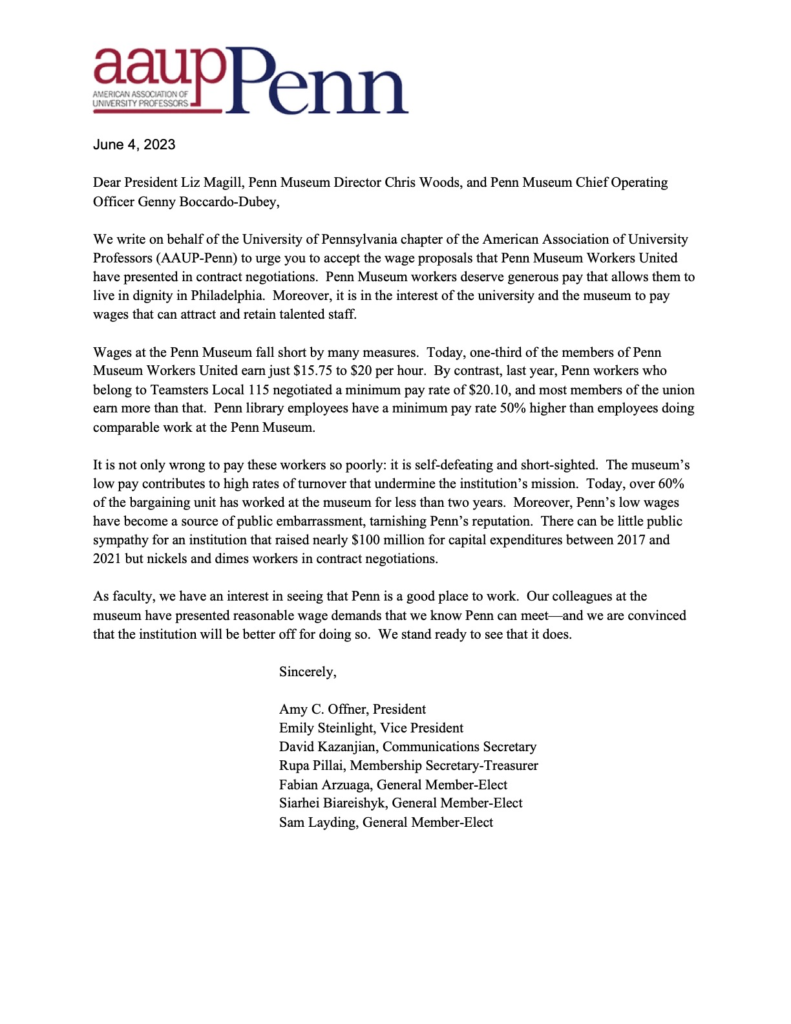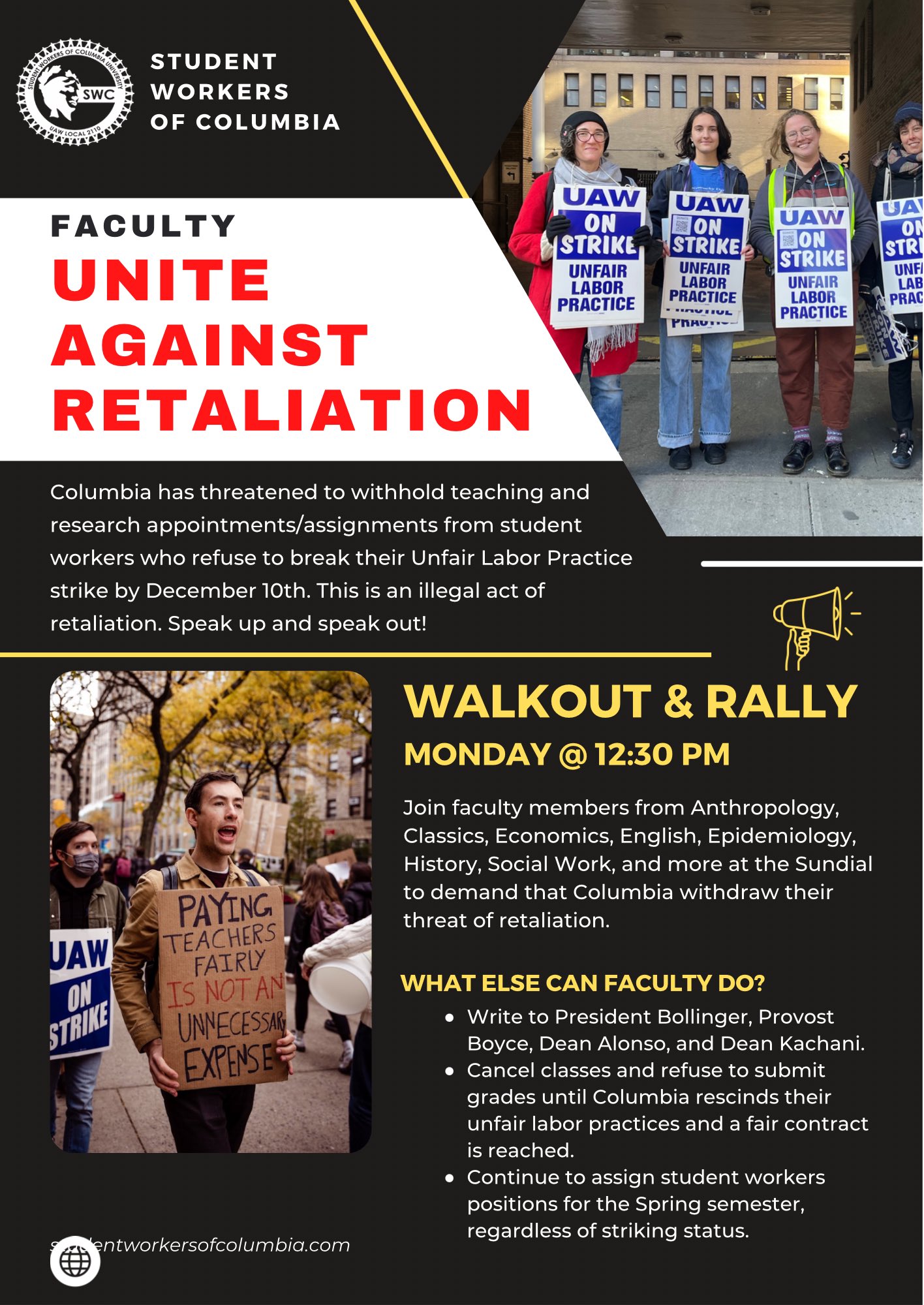Yesterday, March 15, 2022, the Penn administration announced significant policy changes that eliminate indoor masking and other Covid-19 safety measures on our campus. To express the concerns and objections of many of our colleagues, AAUP–Penn’s Covid Response Task Force and the AAUP–Penn Executive Committee immediately drafted the following joint statement, which we sent to the Interim Provost and Interim President as well as the Faculty Senate Tri-Chairs today, March 16th:
***
Dear Interim President Wendell Pritchett, Interim Provost Beth Winkelstein, and Faculty Senate Tri-Chairs William W. Braham, Vivian L. Gadsden, and Kathleen Hall Jamieson,
Having heard from colleagues alarmed by the University’s March 15th announcement regarding policy changes that remove Covid-19 safety measures, the Penn chapter of the American Association of University Professors (AAUP–Penn) writes to share our collective concerns, and to ask the administration to reconsider these policies and provide clarification.
These abruptly announced policy changes are troubling and unsubstantiated by public health science:
- Screening testing is now required only for those who are unvaccinated, are not yet fully vaccinated, or have not uploaded their booster information.
- Masking is now optional in most indoor public spaces on campus, with the temporary exception of classrooms
- Masking will no longer be required in classrooms after March 28.
- Visitors to campus are no longer required to be fully vaccinated.
March 28th is less than a month from the end of the academic year. We are unclear as to why there is such a rush to unmask at this late date in the semester, and these new guidelines raise a number of concerns. In particular:
Our students travel widely during spring break, including to countries with rapidly rising Covid-19 rates such as the UK (despite very high vaccination rates) and other countries that have considerably lower vaccination rates. In addition, wastewater testing shows case rates in the U.S. rising at 38% of testing sites over the past two weeks; 15% of wastewater sites tracked by the CDC showed an increase in Covid-19 levels up to 1000%. This data suggests, despite a temporary lull, that the pandemic is not over. Why eliminate screening testing altogether, rather than modify testing policy and wait to gather data about infection rates on campus? Penn claims to rely on its own scientific expertise, yet the findings of its clinical group that supposedly meets regularly to assess OpenPass guidelines and other Covid-19 policies are never shared. Relying for guidance on the city of Philadelphia, which may be basing its decisions on political pressure as much as public health information, seems out of keeping with the knowledge-driven mission of a research university like Penn.
Booster effectiveness has been shown to drop dramatically after 4 months, causing Pfizer to seek approval for fourth boosters for those 65 and older, a population that includes a significant number of faculty members. Although Penn may have set a deadline of January 2022 for boosters, many faculty, graduate students, and staff received their booster shots when they were first available in October 2021. Such personnel are likely much more vulnerable to the new BA.2 variant. Additionally, students who are immunocompromised or not comfortable going maskless may feel self-conscious about wearing masks in class once they are no longer required. The welfare of our students is a top priority for faculty, and we are concerned for vulnerable members of our classes. We are equally concerned for the safety of staff and campus workers, particularly those who work in densely populated indoor spaces.
In light of the above, many of our colleagues ask for and urgently need further explanation and reconsideration:
- Will instructors have the option to require students to wear masks in the classroom, even if Penn’s guidelines make masks optional?
- Will faculty, grads, and staff with caregiving responsibilities for those in high risk categories, such as the elderly and children under 5 who cannot be vaccinated, be able to shift their teaching or work online if they can no longer expect students and those around them in their workplaces to wear masks?
- What steps are being taken to ensure that all students feel safe in common spaces, including immunocompromised, disabled, and other high-risk students?
- What steps are being taken to protect the health of staff in high-traffic spaces?
We realize that some members of the Penn community may be eager to go “back to normal,” and we sympathize deeply with that wish. But we cannot wish away the recurring risks or the impact of the pandemic on the lives of faculty, grads, students, and staff. Some of us have lost family members to Covid, and many of us currently care for elderly parents. Some of us live with partners or family members who are immunocompromised, or are older or otherwise medically vulnerable ourselves, and a very large number of faculty and staff have children under 5 who are still unable to be vaccinated. A non-trivial proportion of contingent faculty who teach Penn students and an even higher proportion of subcontracted campus workers may not even have employer-provided medical coverage if they get sick while working on our campus; what will Penn do to keep them safe? From the start of the pandemic our chapter has asked the University to prioritize the wellbeing of the most vulnerable in our community. Removing even the most minimal forms of mitigation such as masking in our shared spaces now feels like organized abandonment.
In the interest of our entire community, we urge Penn’s central administration to rethink and reverse these premature policy changes.



